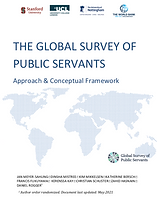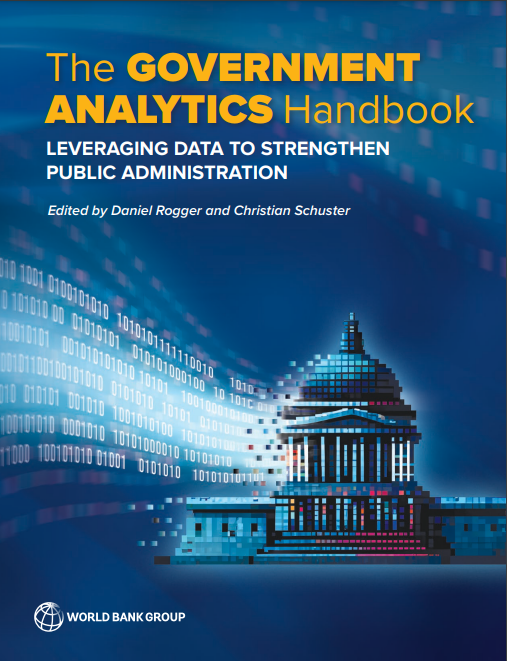How to Run the Survey
To support the development of public servants surveys around the world, the GSPS provides a series of resources to strengthen the survey process.
1. We propose a core module for inclusion in all surveys of public servants.
2. We provide a large range of other modules as a question bank.
3. We have produced a series of survey tools to guide survey work.
Global Survey Core Questionnaire Module
To improve the coherence of surveys of public servants across space and time, the GSPS proposes that public servants surveys include a common module of questions. The rationale for a common module and the selection of the particular questions chosen is outlined in the GSPS Conceptual Framework. There are 46 questions in total, with a standard running time of 15 minutes. Browse the core module below and download it here. The core module is also available to download in Spanish and Portuguese, including a programmed version on SurveyCTO below.
| Language | Link | Description |
|---|---|---|
| Core Module (English) | Word PDF | Core module questionnaire in English |
| Core Module (Spanish) | Word PDF | Core module questionnaire in Spanish |
| Core Module (Portuguese) | Word PDF | Core module questionnaire in Portuguese |
| Core Module (Programmed) | SurveyCTO Form | Core module programmed using SurveyCTO |
Global Survey Topic Modules
Beyond the GSPS Core Module, we provide here questionnaires, modules and associated documentation from a range of surveys undertaken by Global Survey founding members, to facilitate survey diagnostics on specific topics by governments or researchers.
| Module Name | Link | Description |
|---|---|---|
| Informed Consent | Link to Module | Provides an example of a frequently used introduction and consent for survey administration. |
| Attitude and Motivation | Link to Module | Explores attitude of public servants to different aspects of their job and organization to get a sense of their motivation and its drivers. |
| Corruption | Link to Module | Explores the attitudes, experience, and behavior towards the maintenance of rules and standards across the organization. |
| Facilities | Link to Module | Explores the extent of availability of infrastructure in offices and for field-based work. |
| Information | Link to Module | Aims to assess the level of information that officials have about the demographic conditions and state of services of their jurisdiction. |
| Information Technology | Link to Module | Investigates information systems in the organization, the type of information available and the extent of its accessibility. |
| Job Characteristics | Link to Module | Aims to assess the extent to which certain knowledge, skills, and personal characteristics are important for civil servants |
| Labor Market | Link to Module | Assesses the staffing needs and labor gaps of the organization, with a focus on planning, prioritization of resources, and labor matching |
| Management Practice | Link to Module | Investigates the nature of basic management practices using both a standard methodological approach and a set of questions inspired by the World Management Survey. |
| Onboarding | Link to Module | Assesses the presence of a detailed and formal onboarding process for civil servants. |
| Procurement | Link to Module | Explores the usage, costs, and benefits of paper-based and electronic procurement systems |
| Remote Work and Covid-19 | Link to Module | Assesses working conditions, workload, interactions, and use and training on IT equipment during remote work. |
| Time Use | Link to Module | Explores how civil servants use their time during a typical work day or week through experimental methods for the measurement of time use. |
| Training | Link to Module | Explores the process of the development of skills from the time civil servants' joined the service through to their current position |

